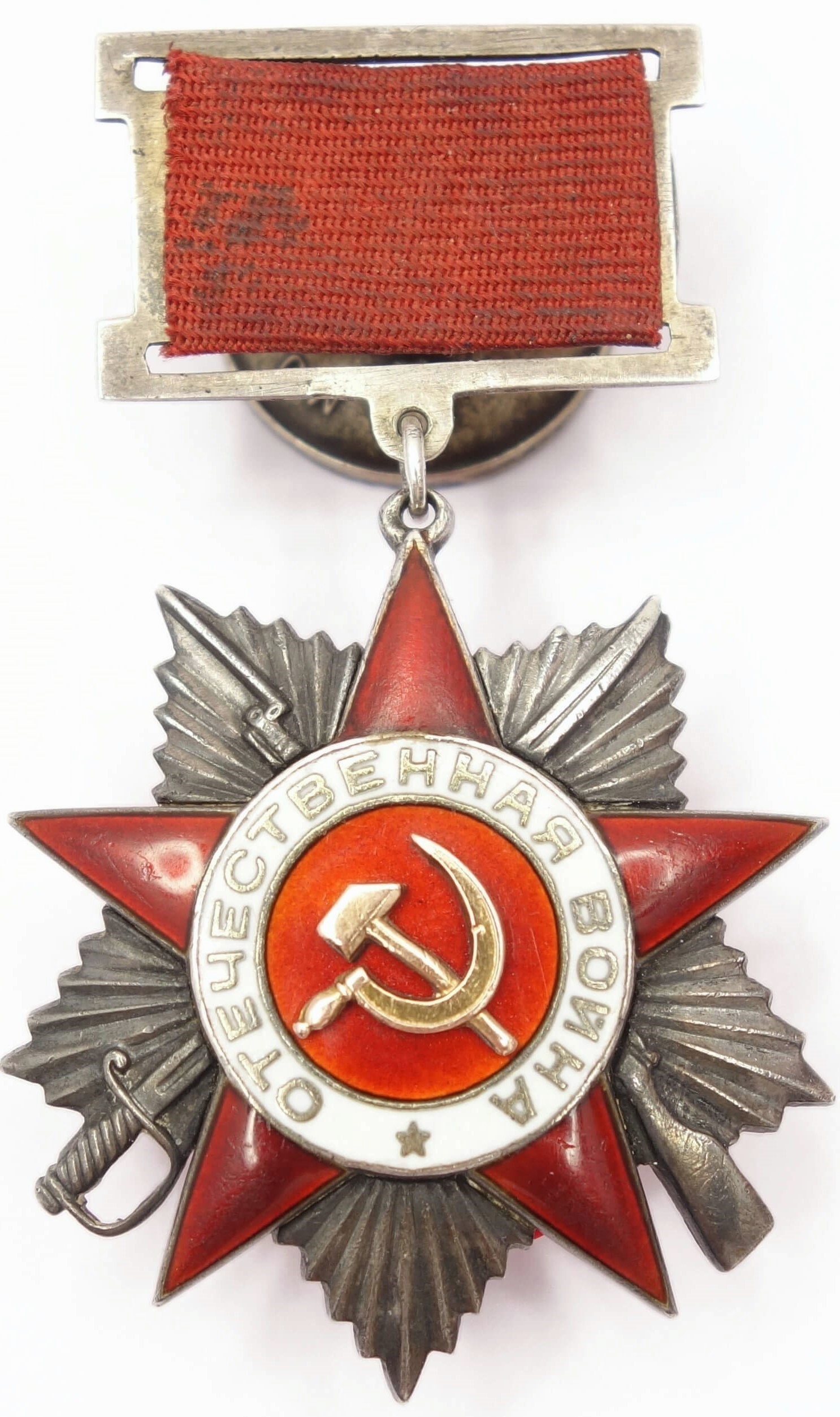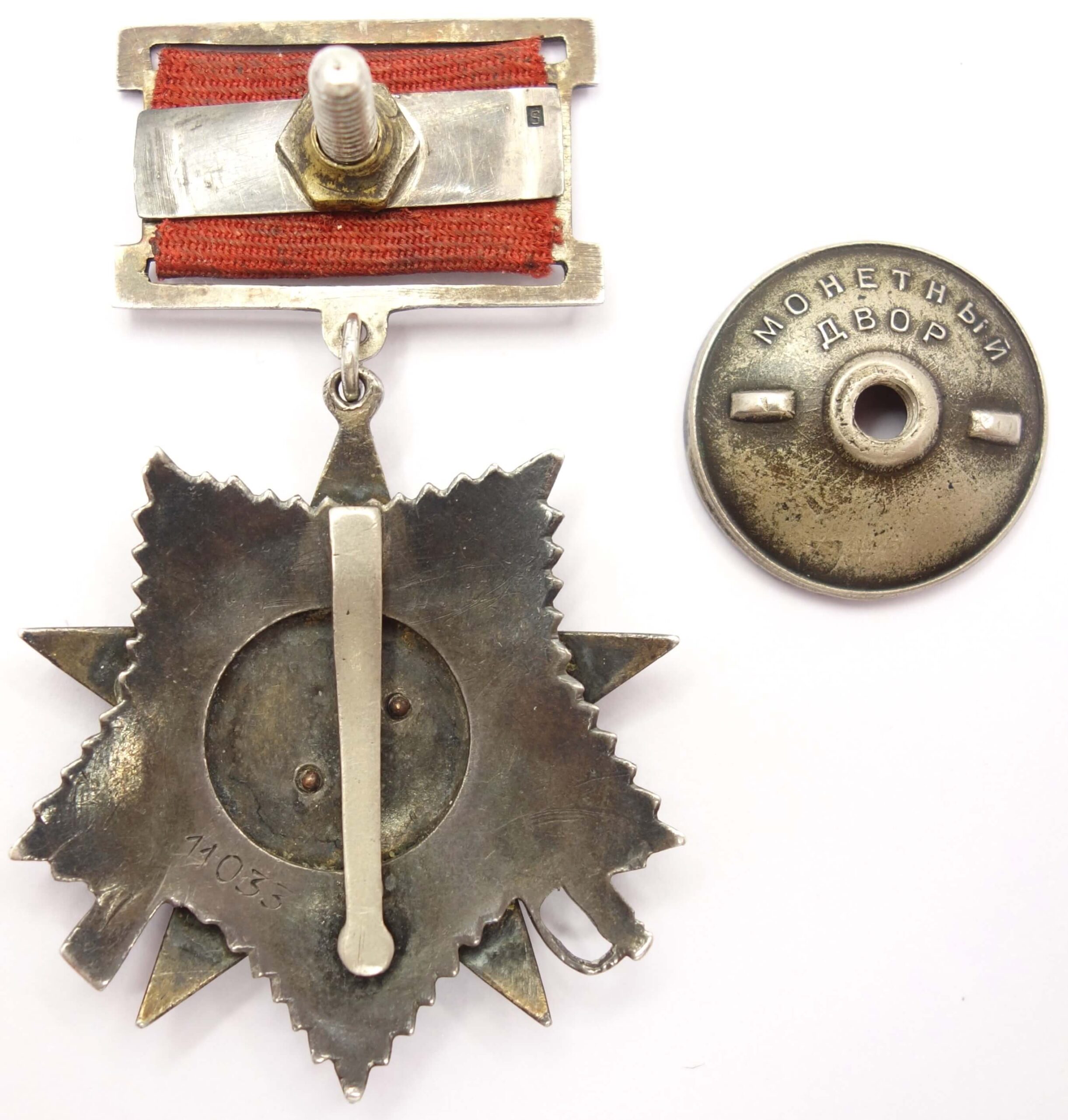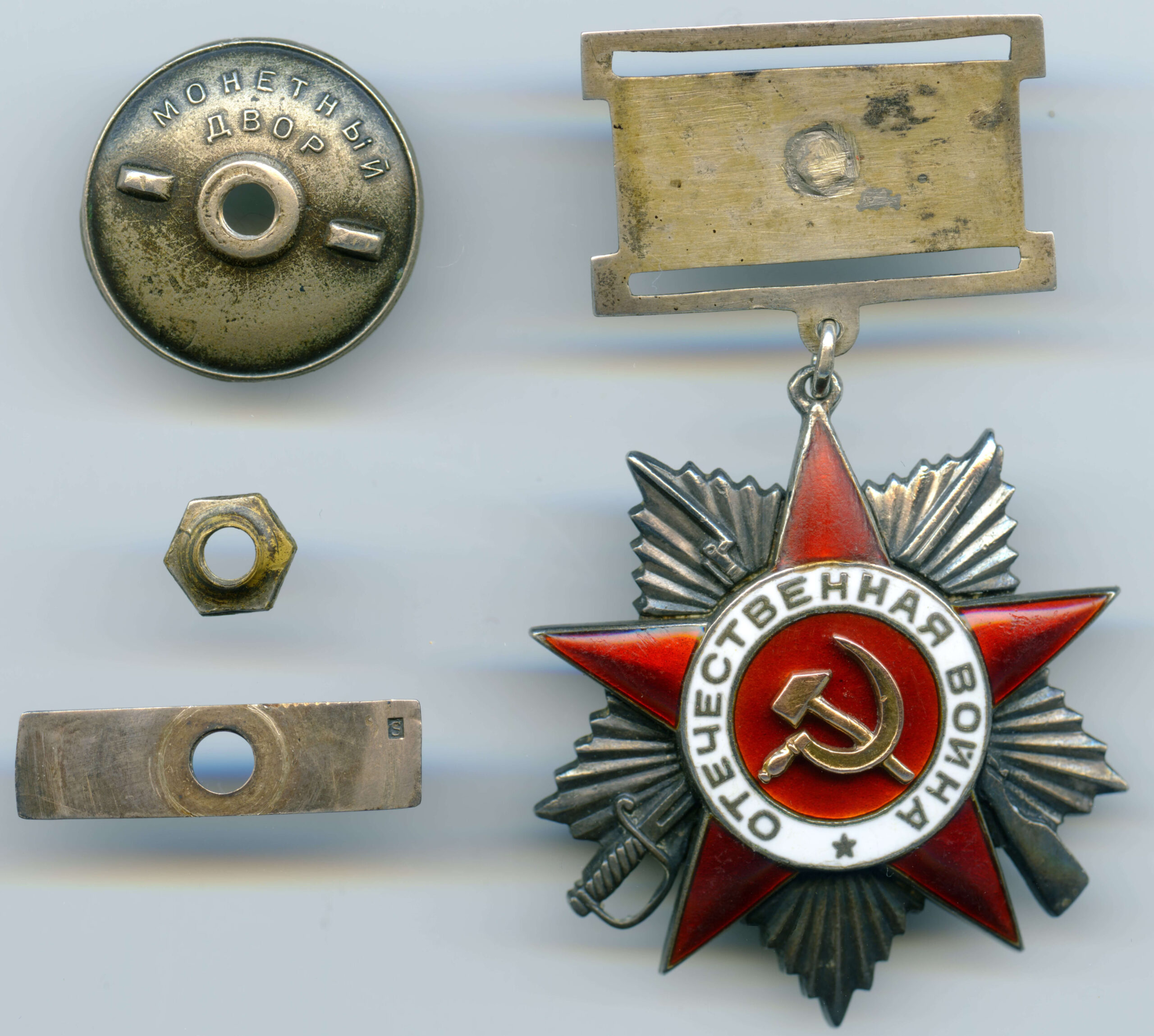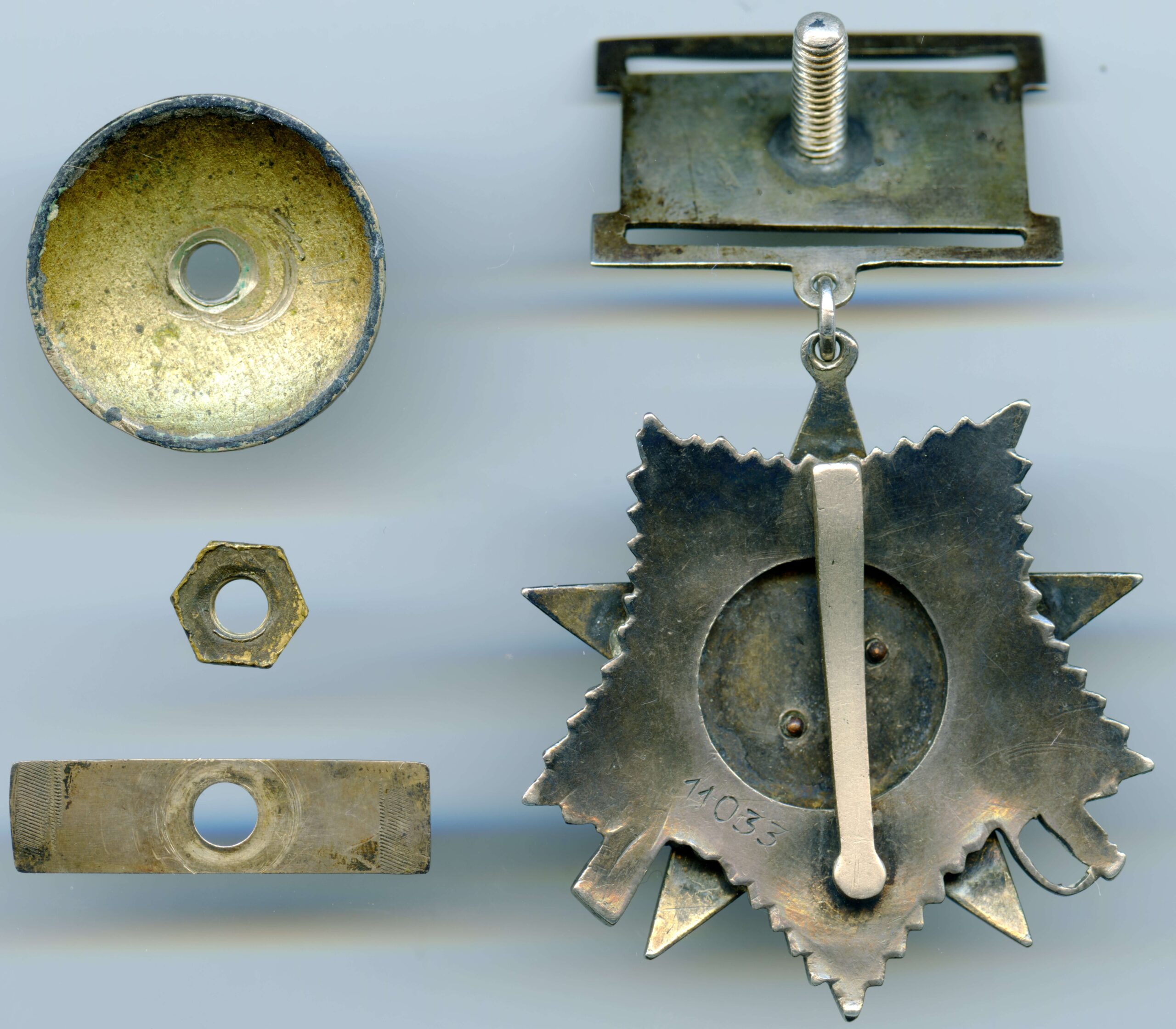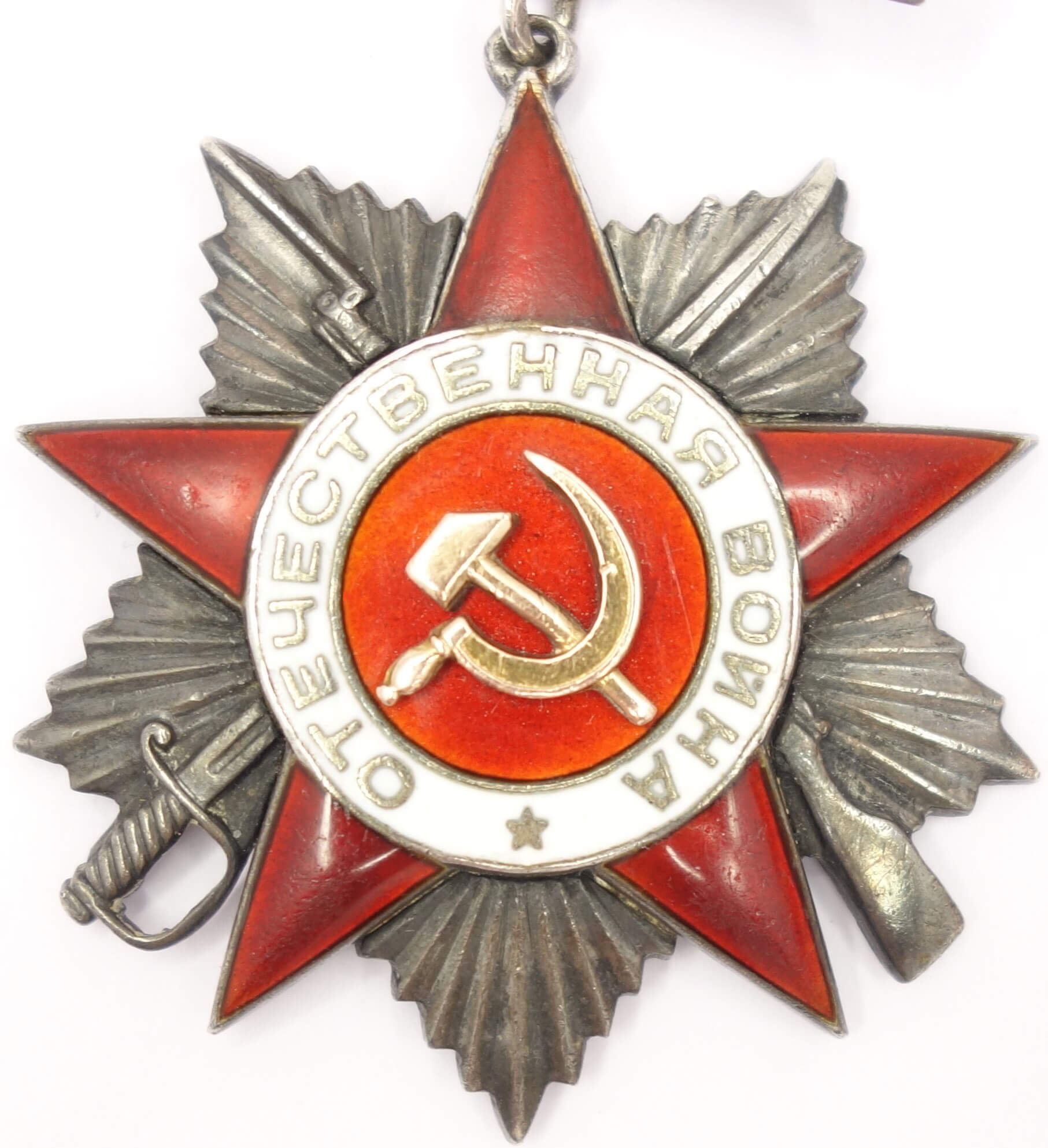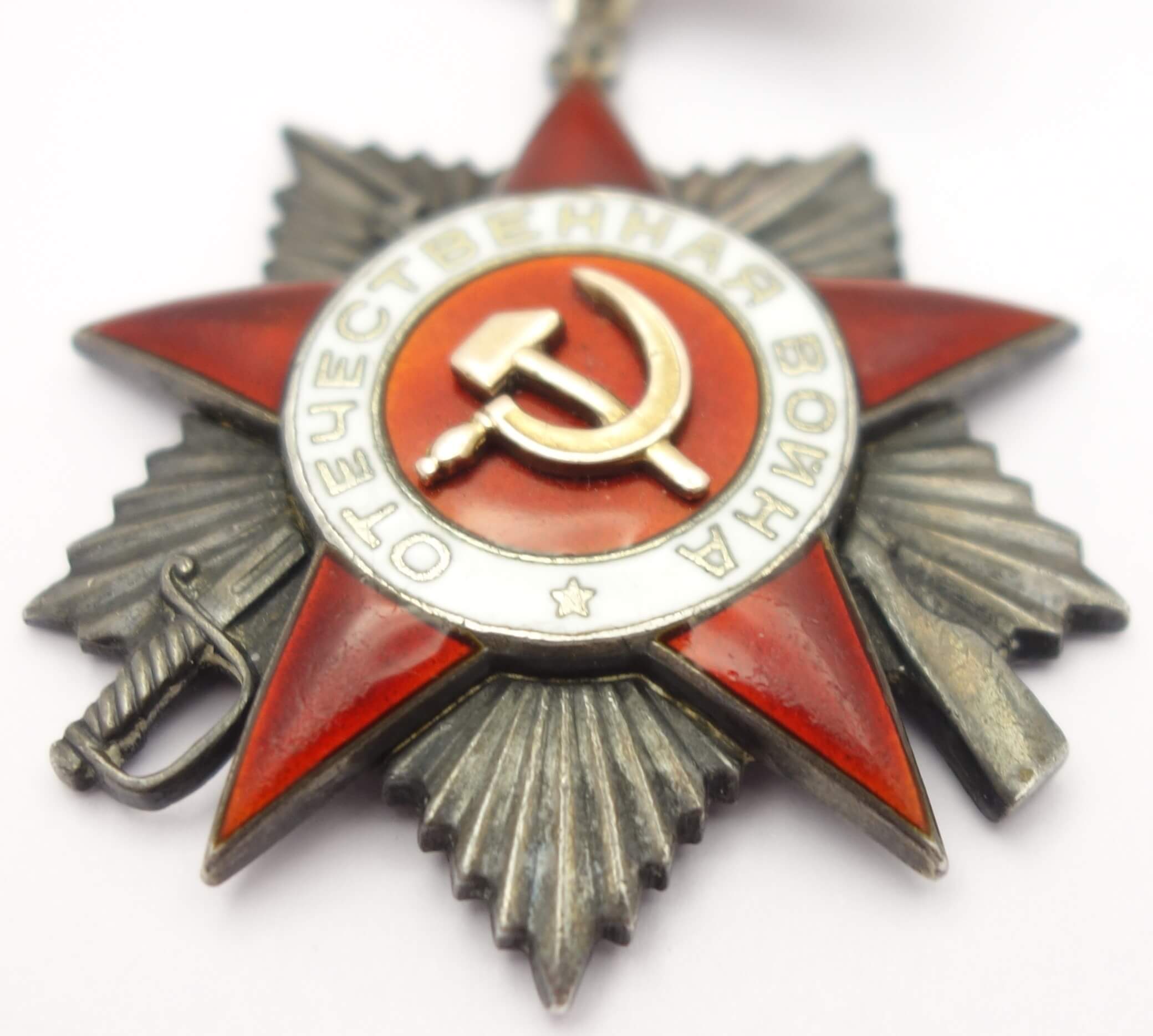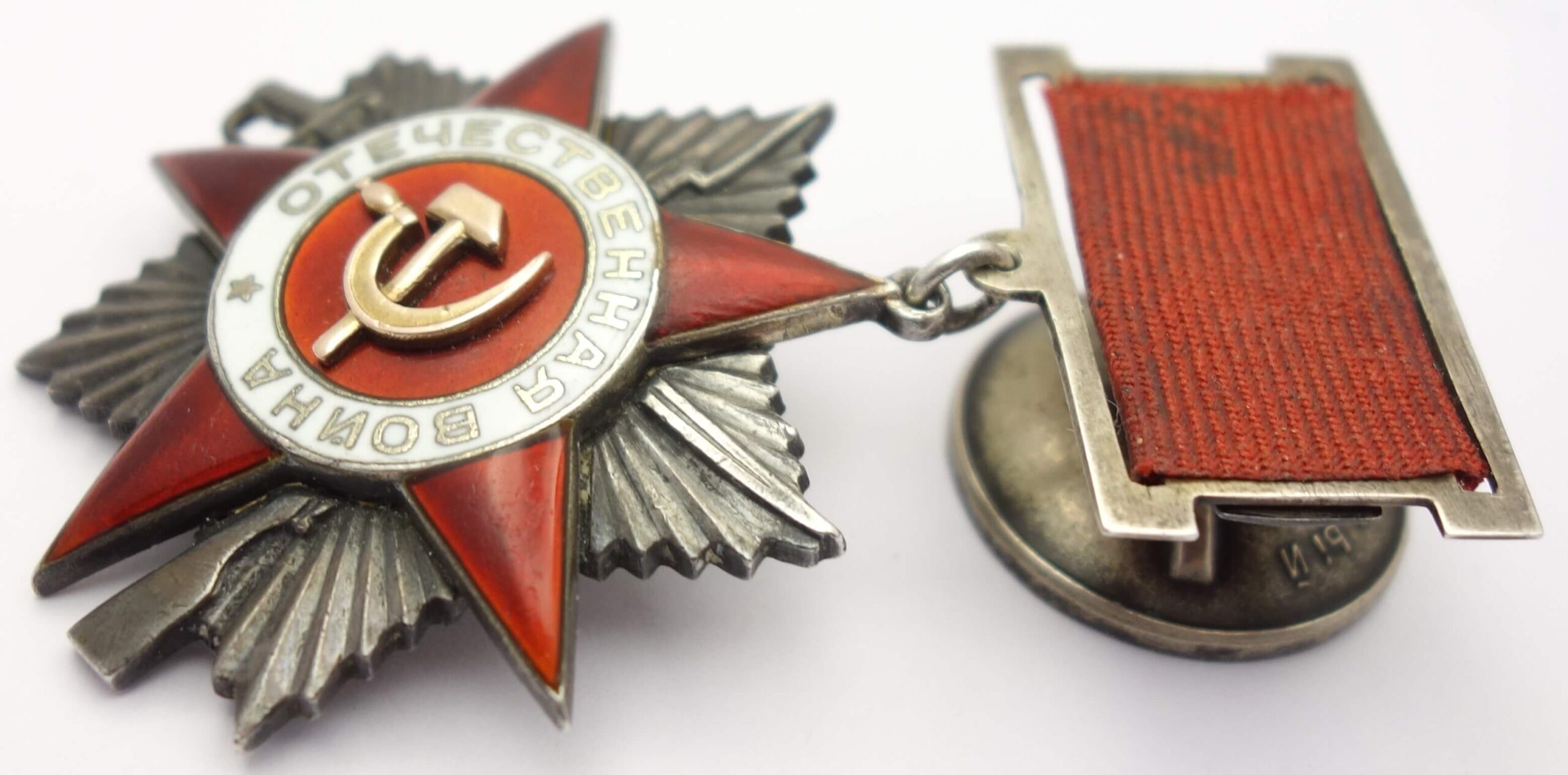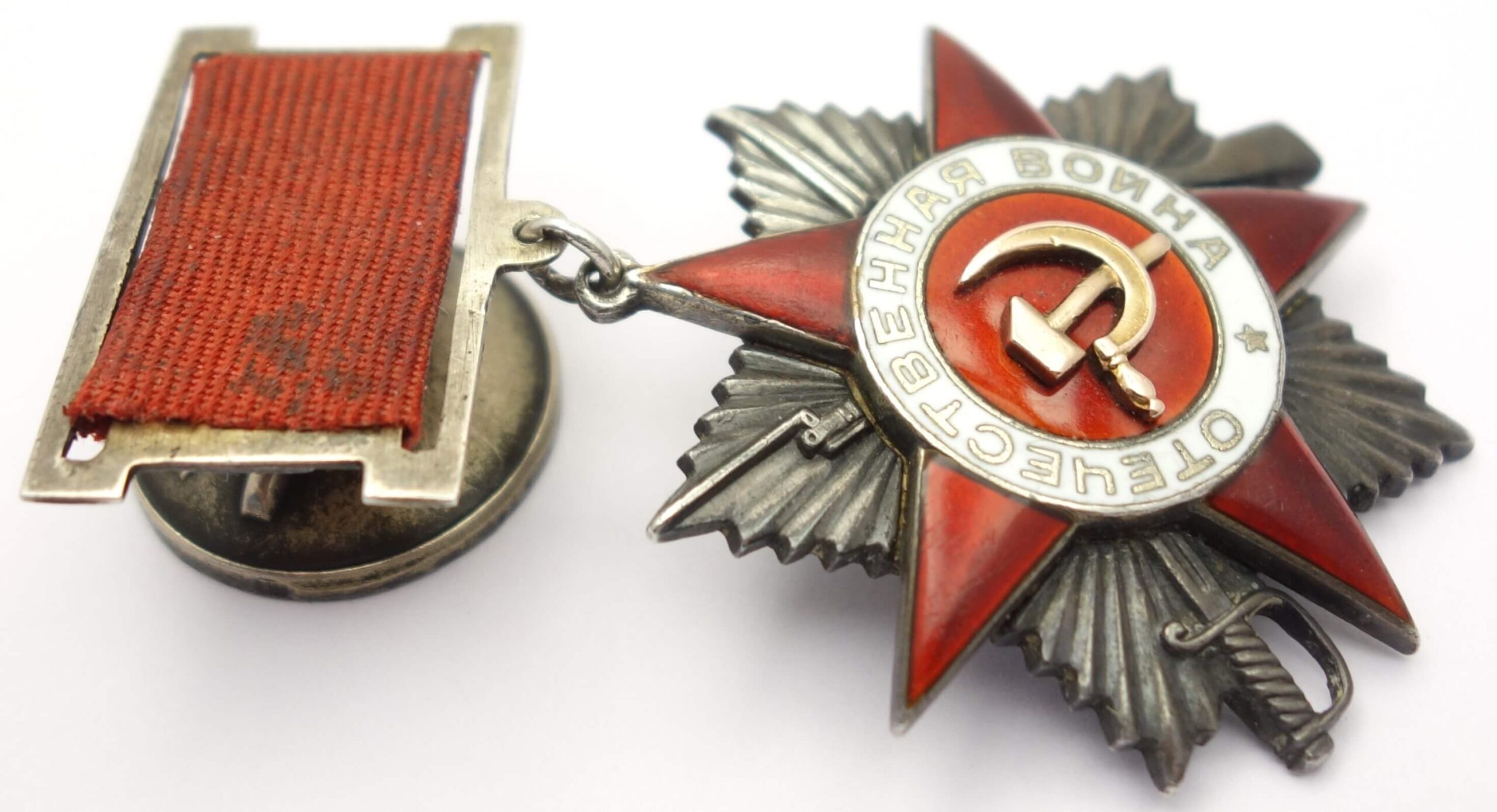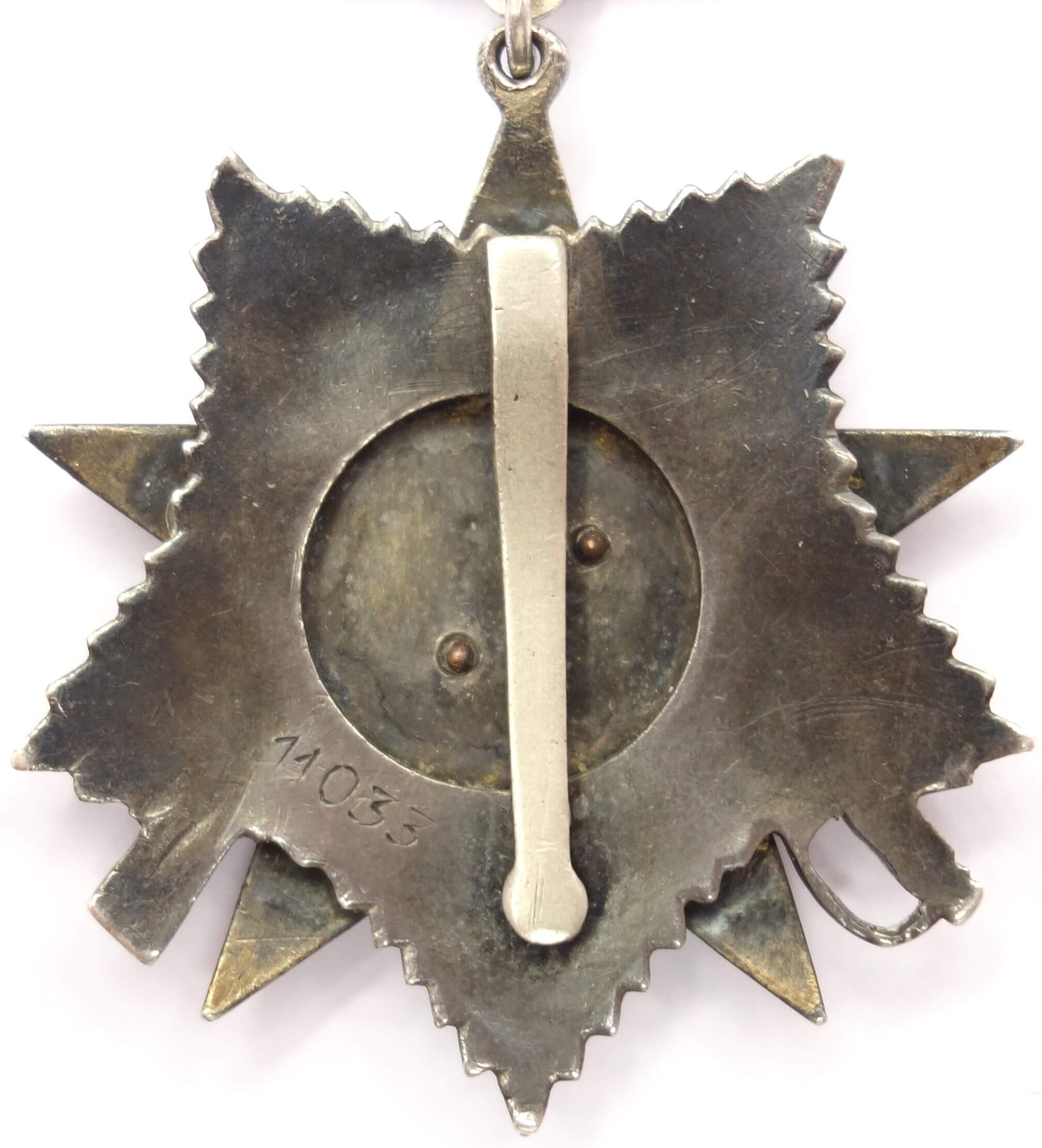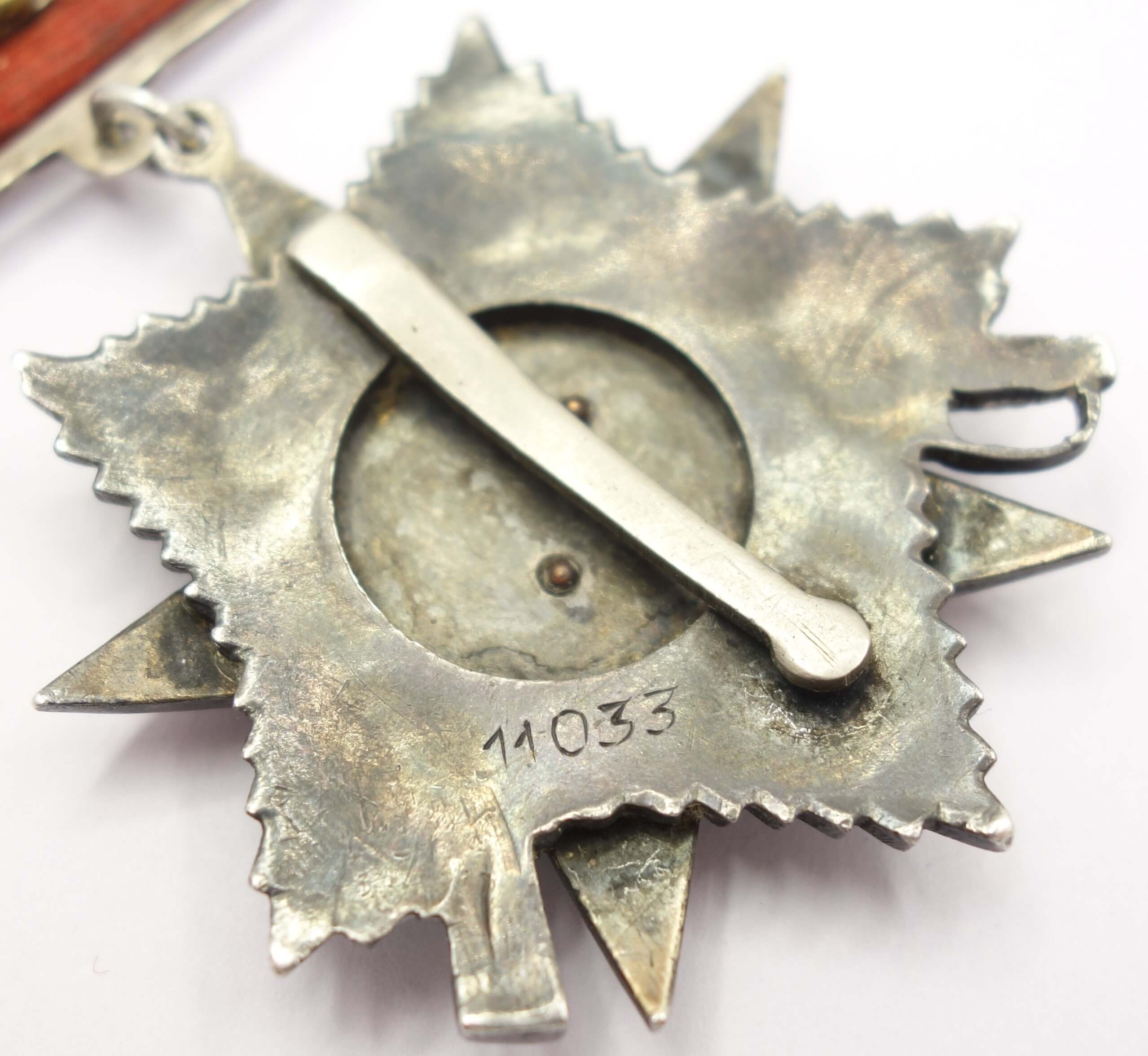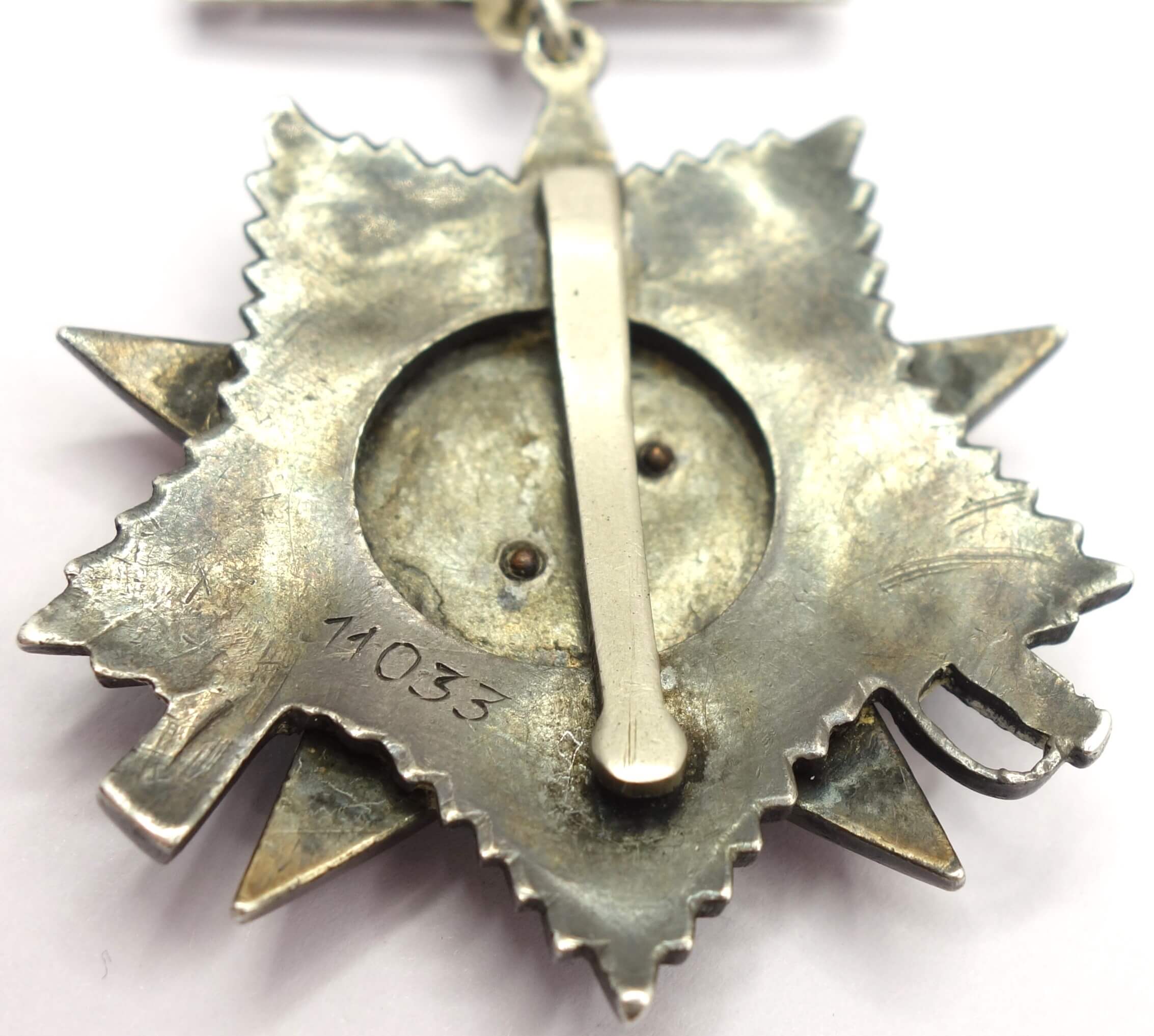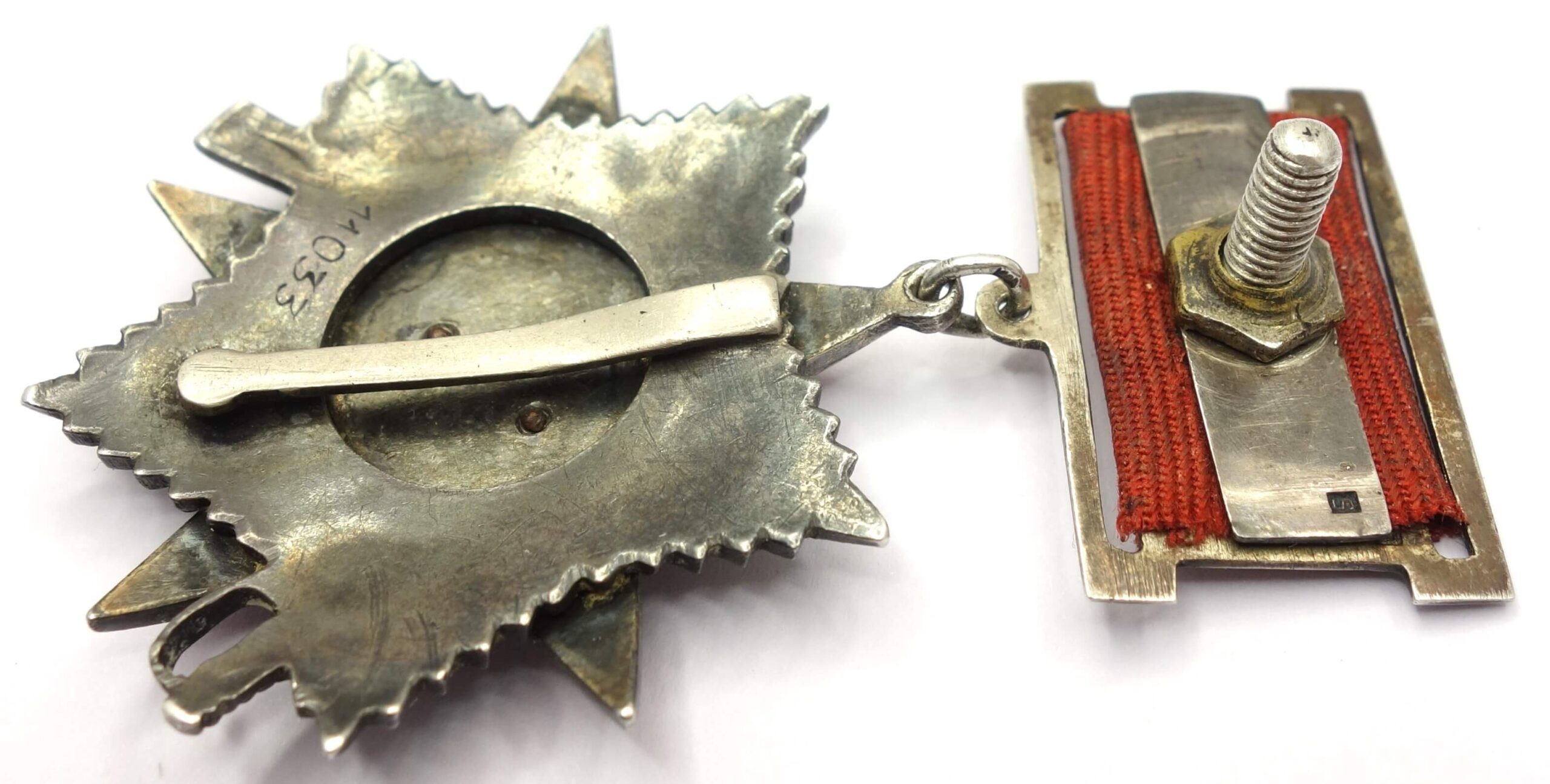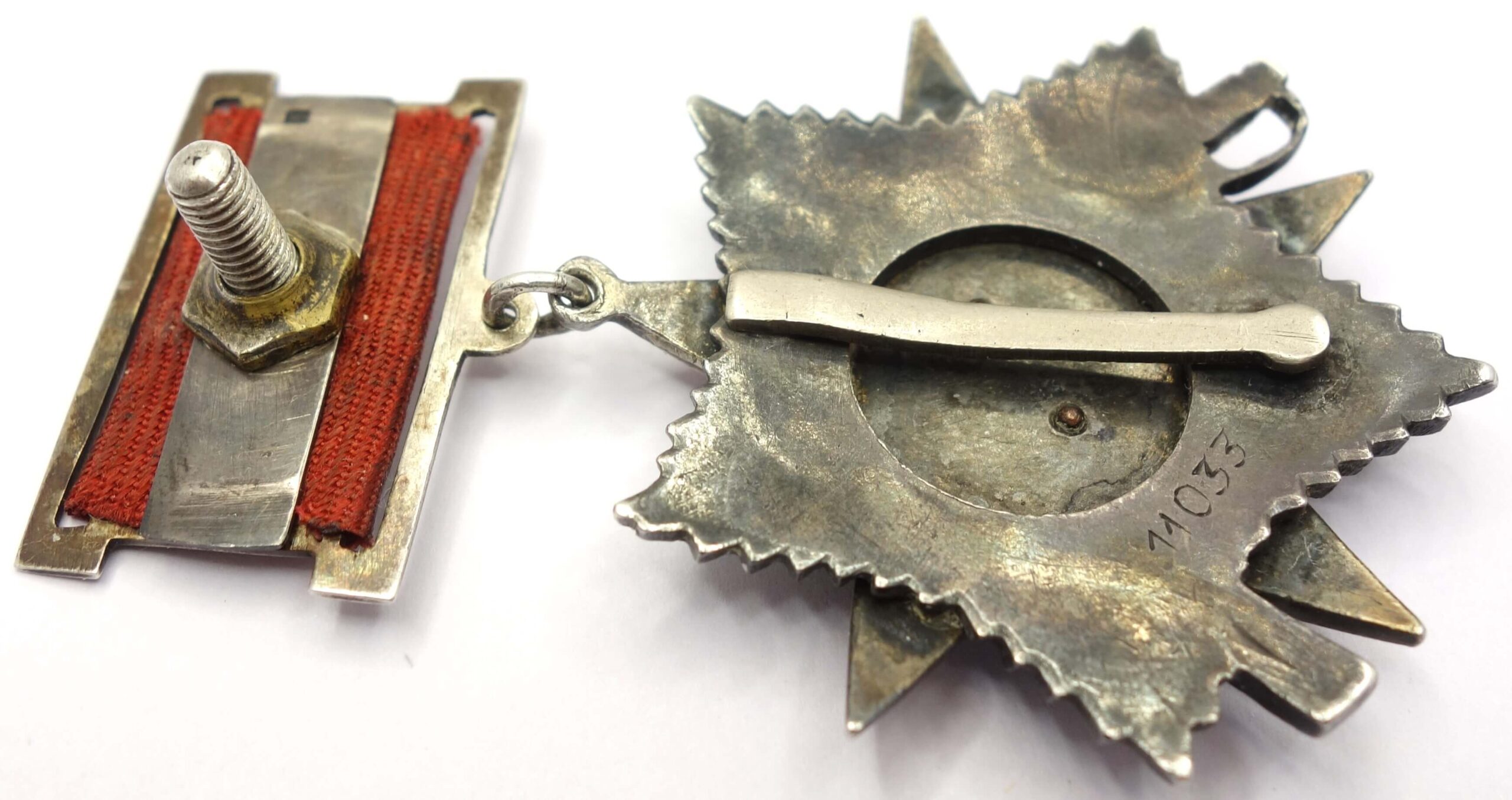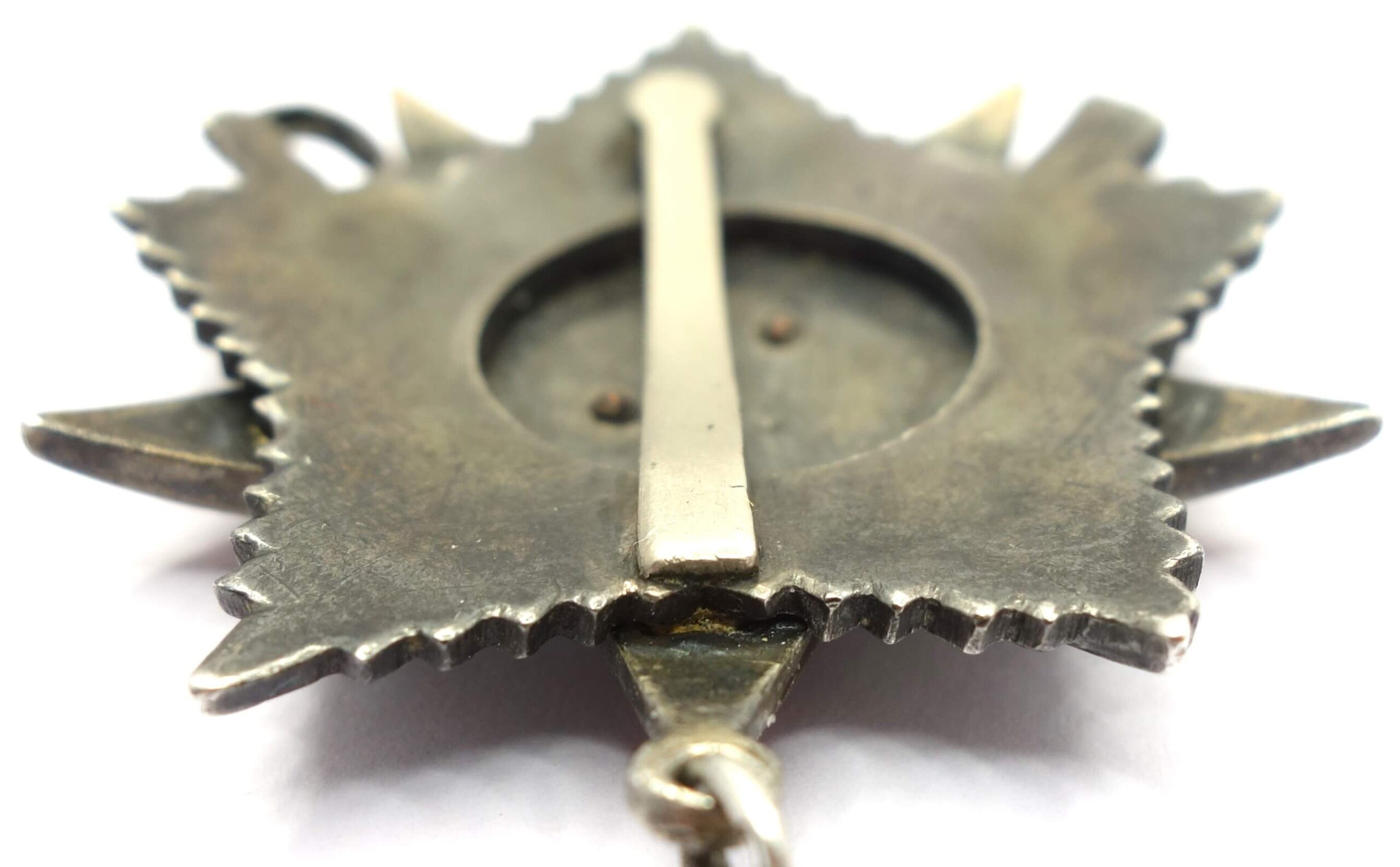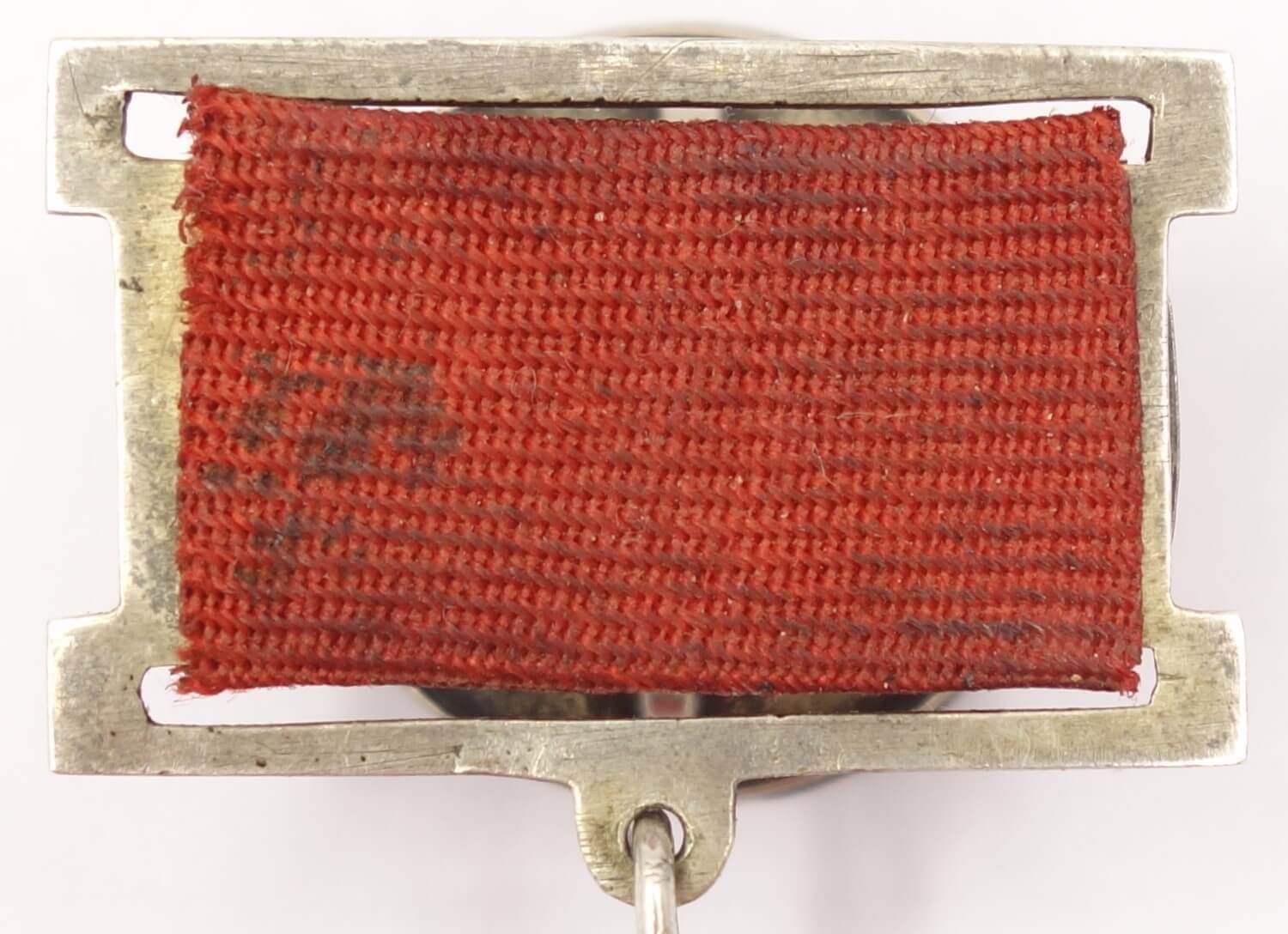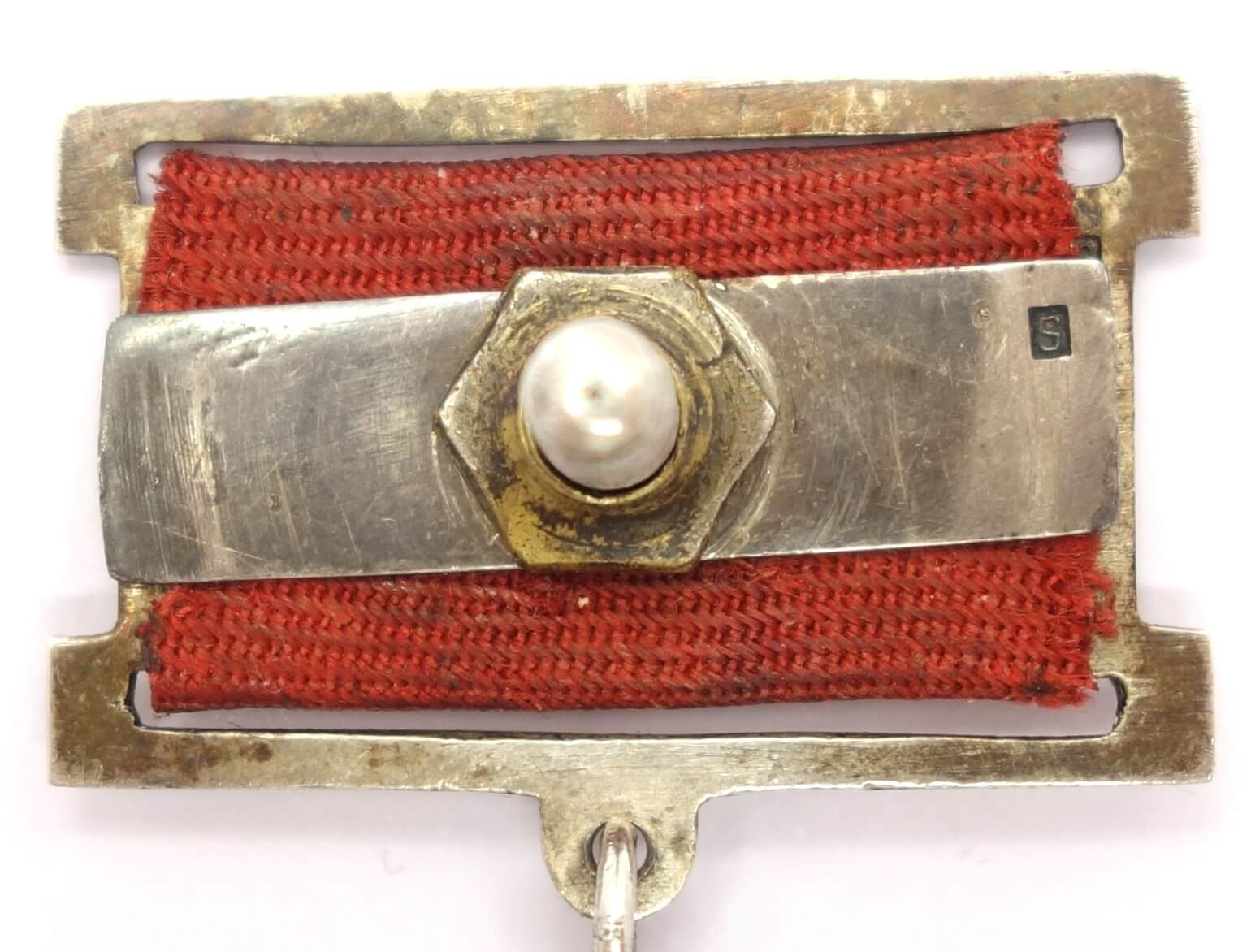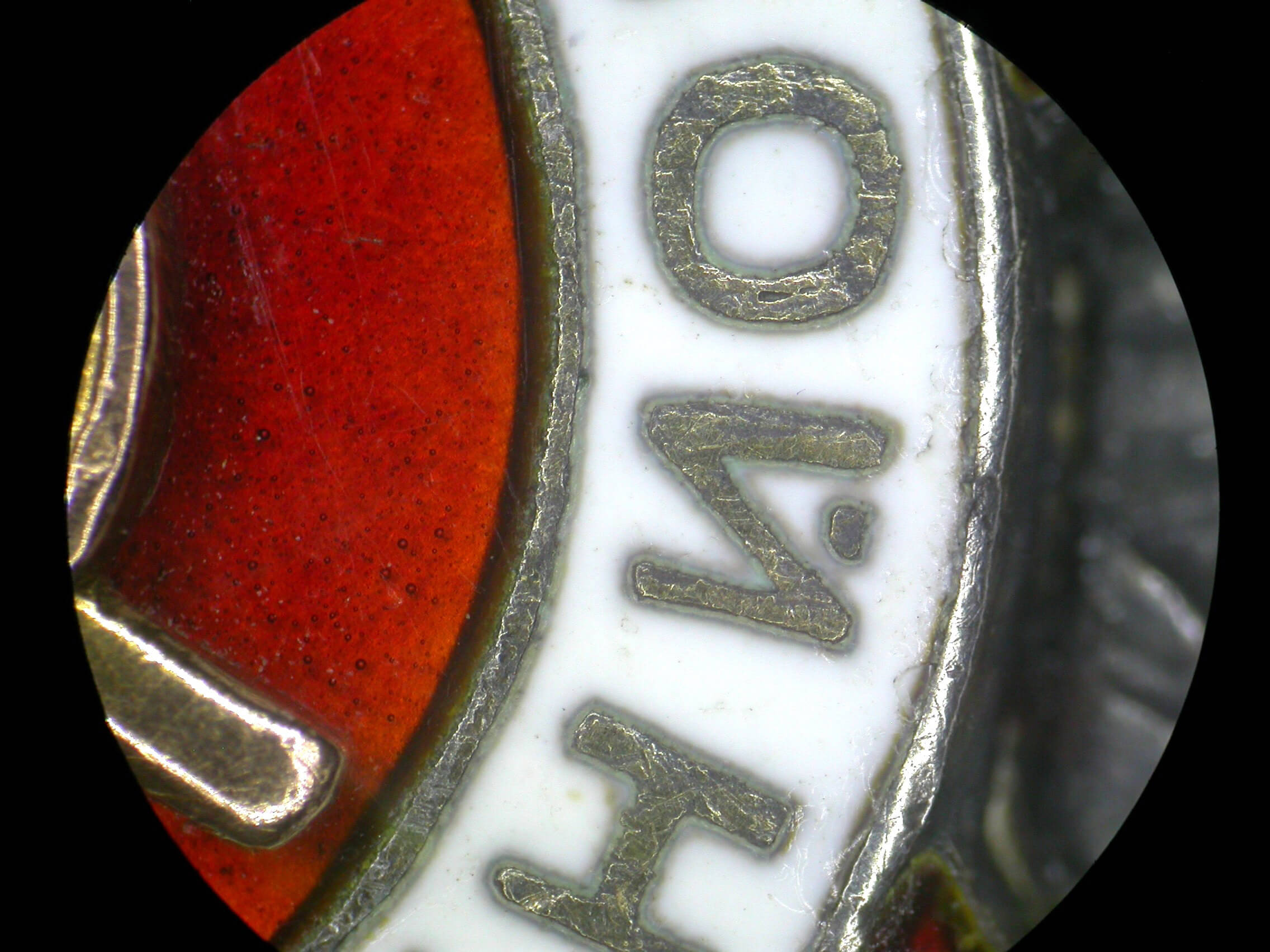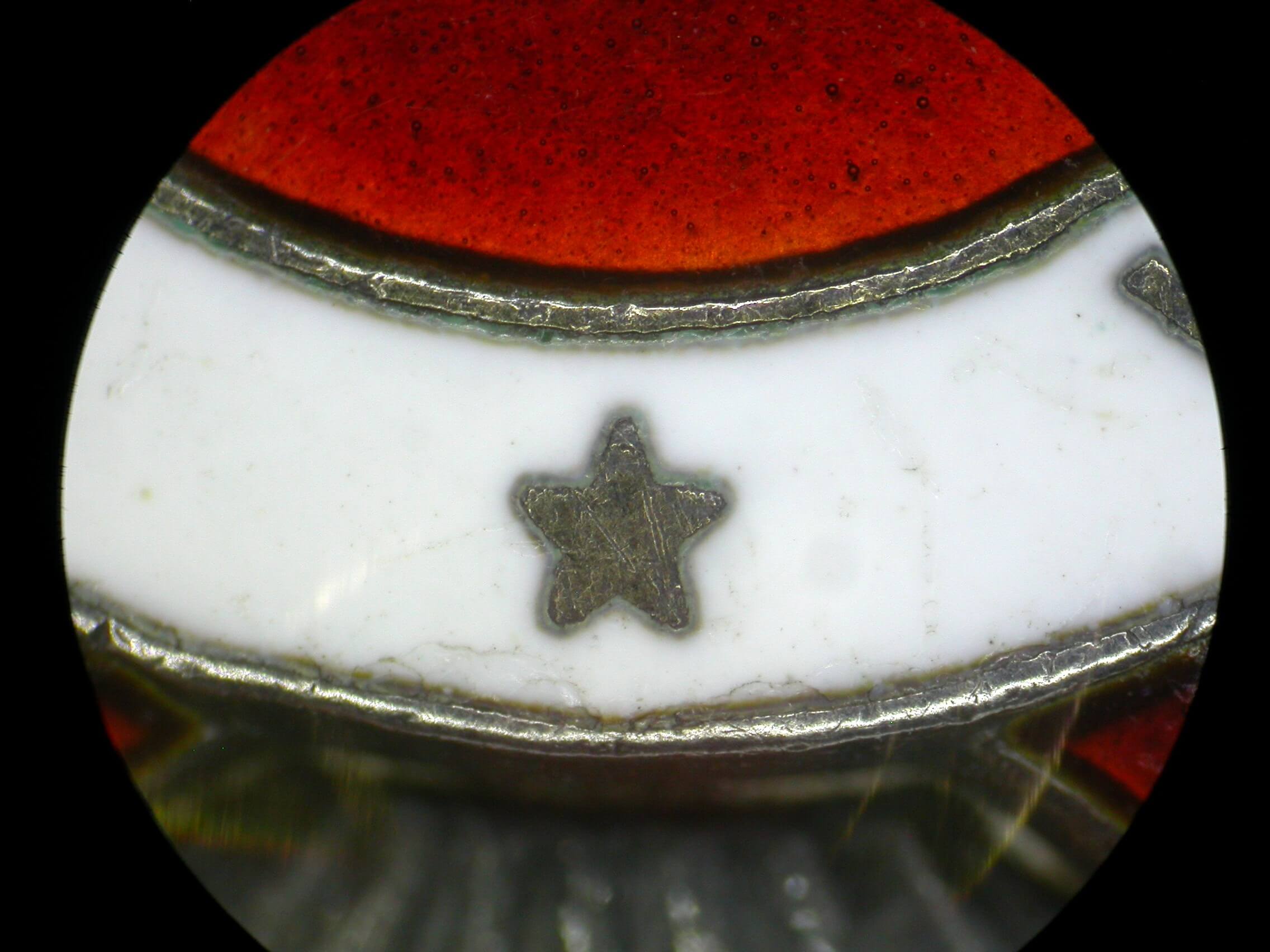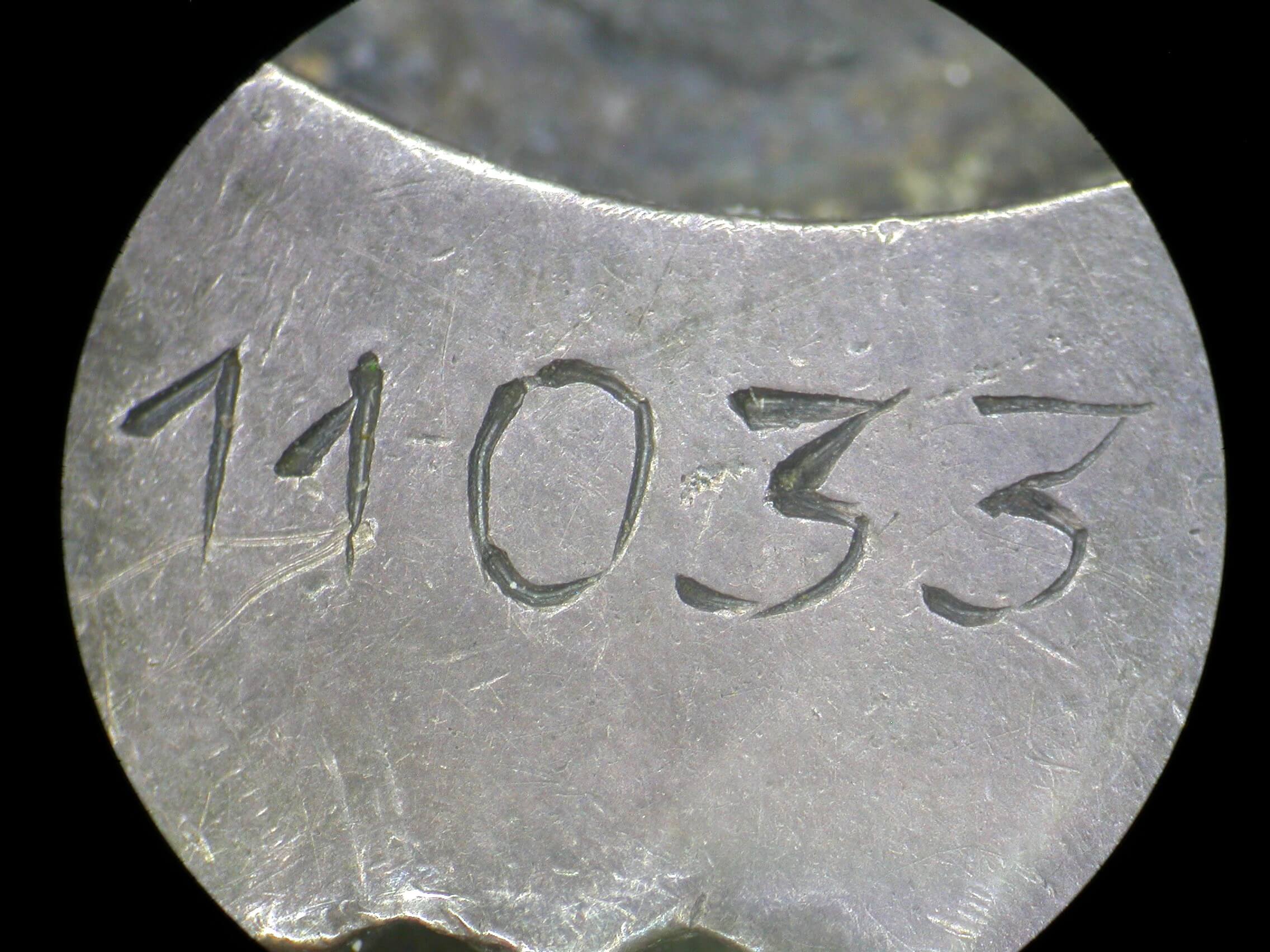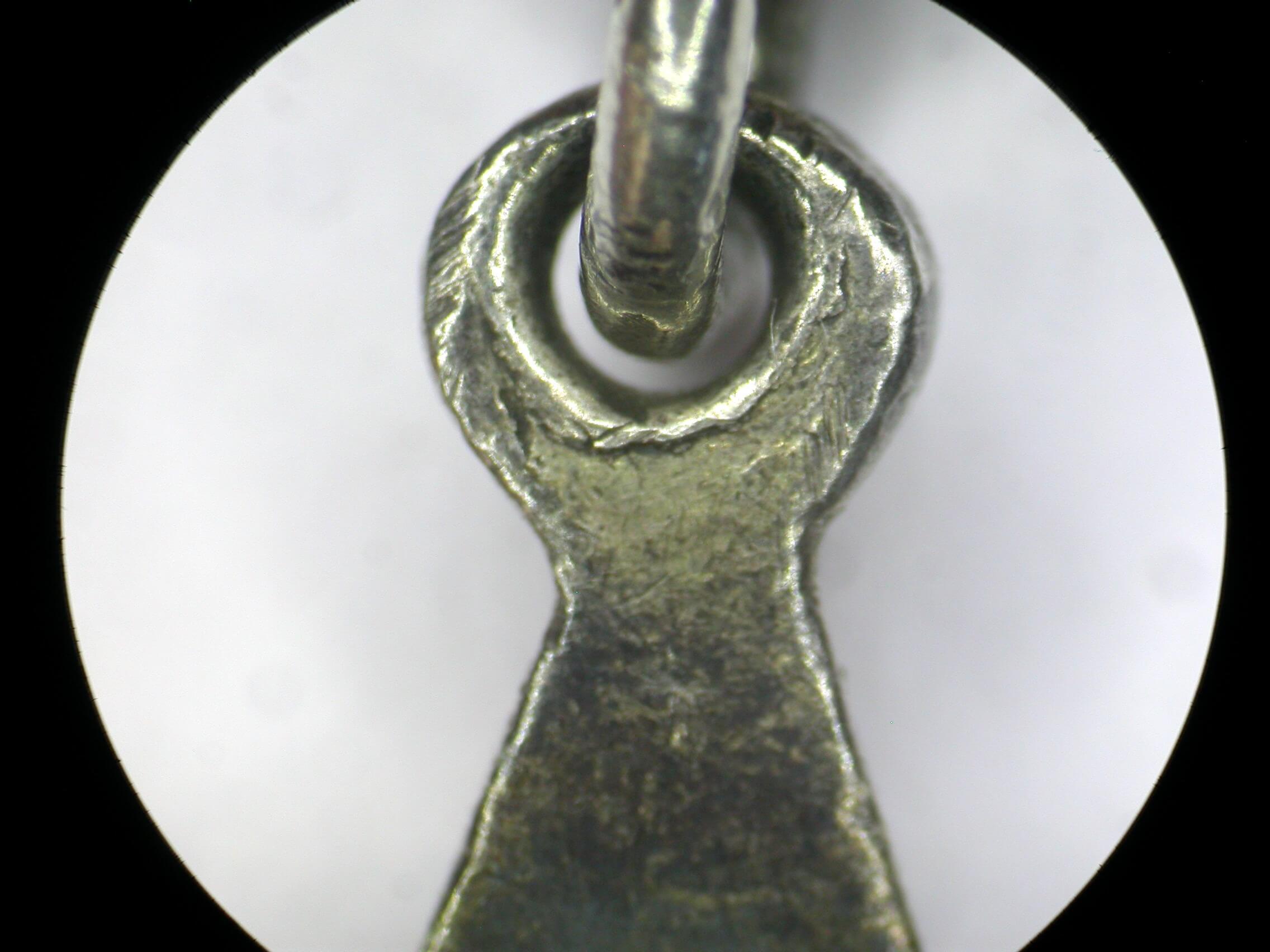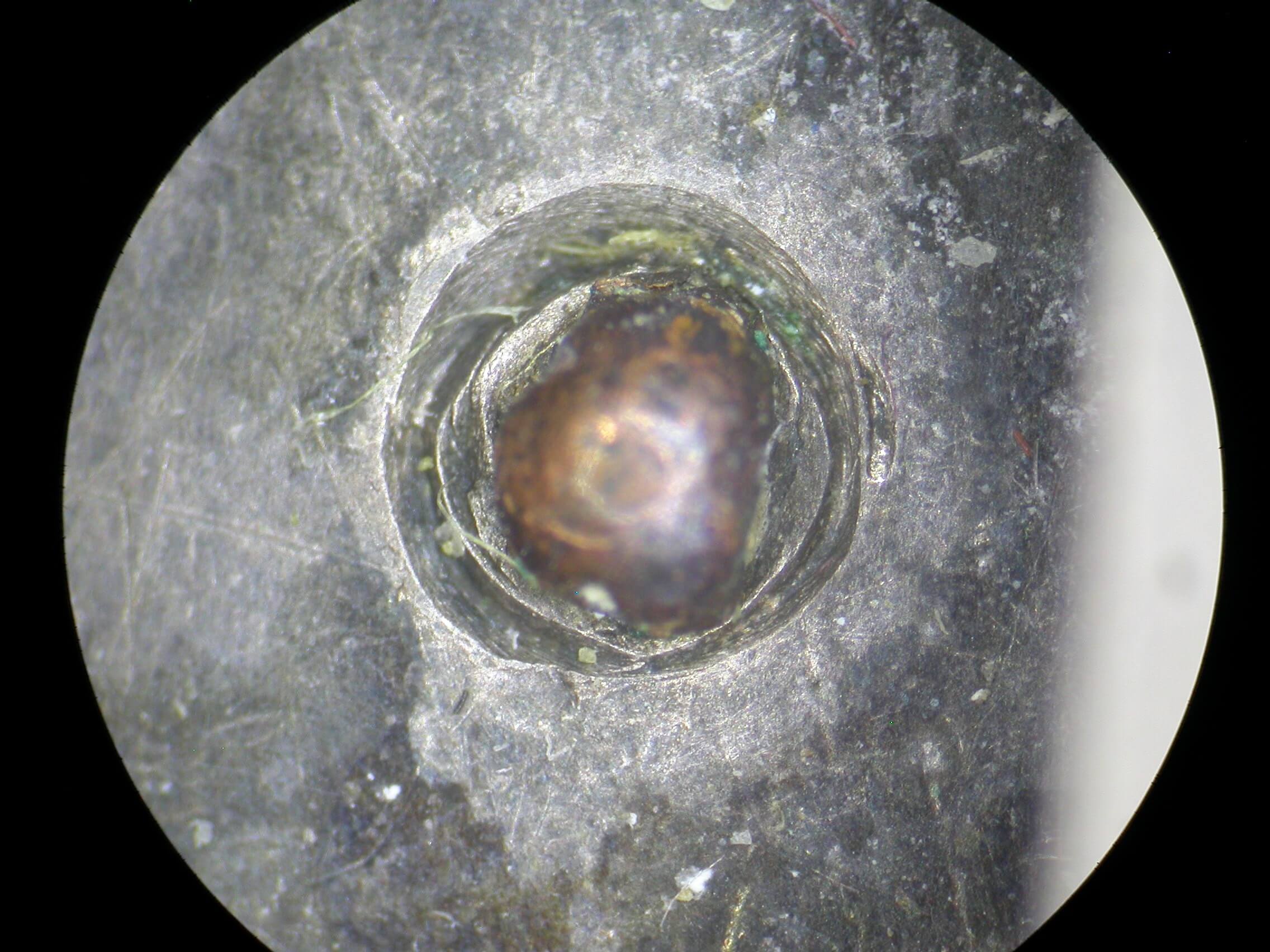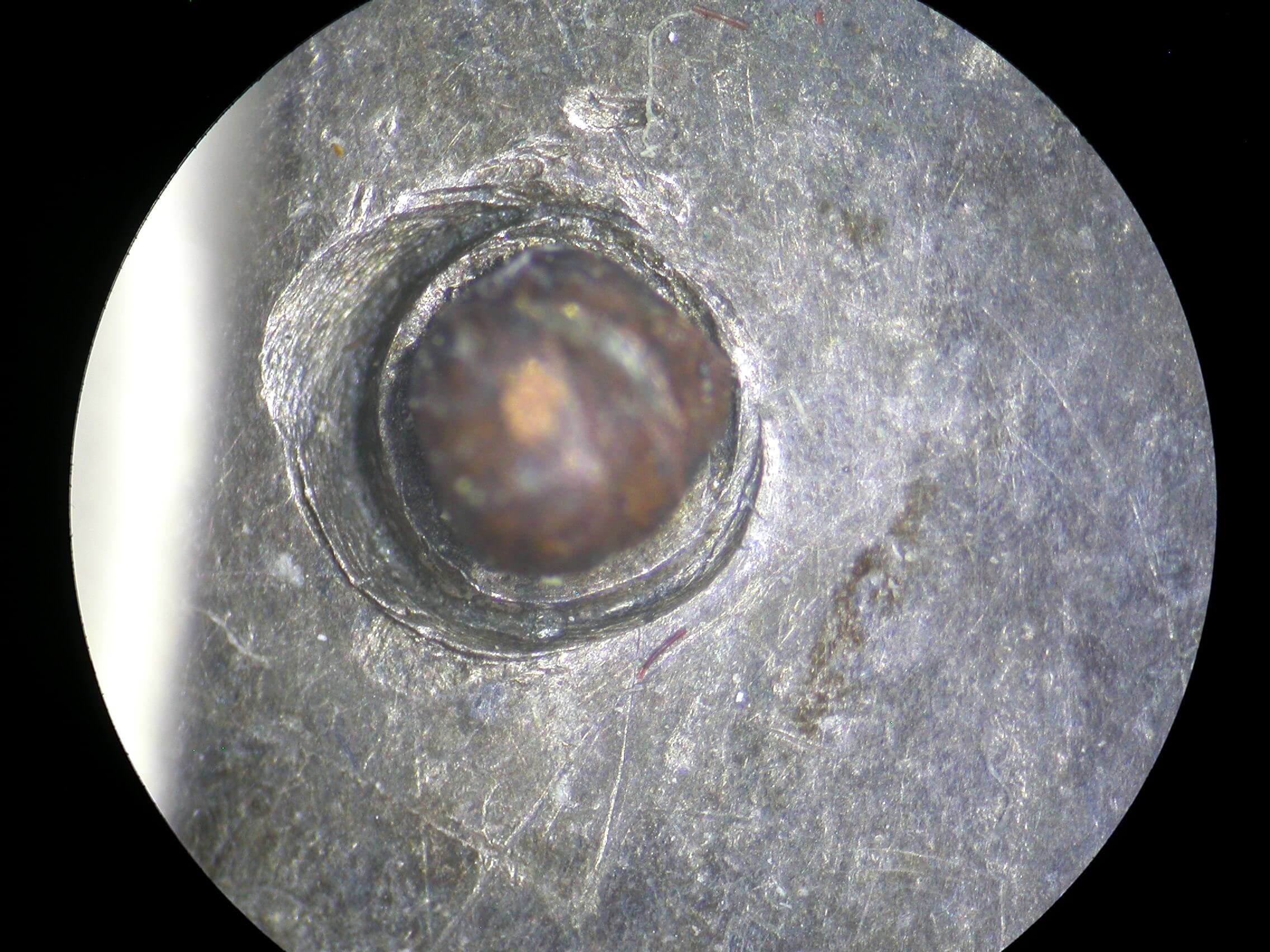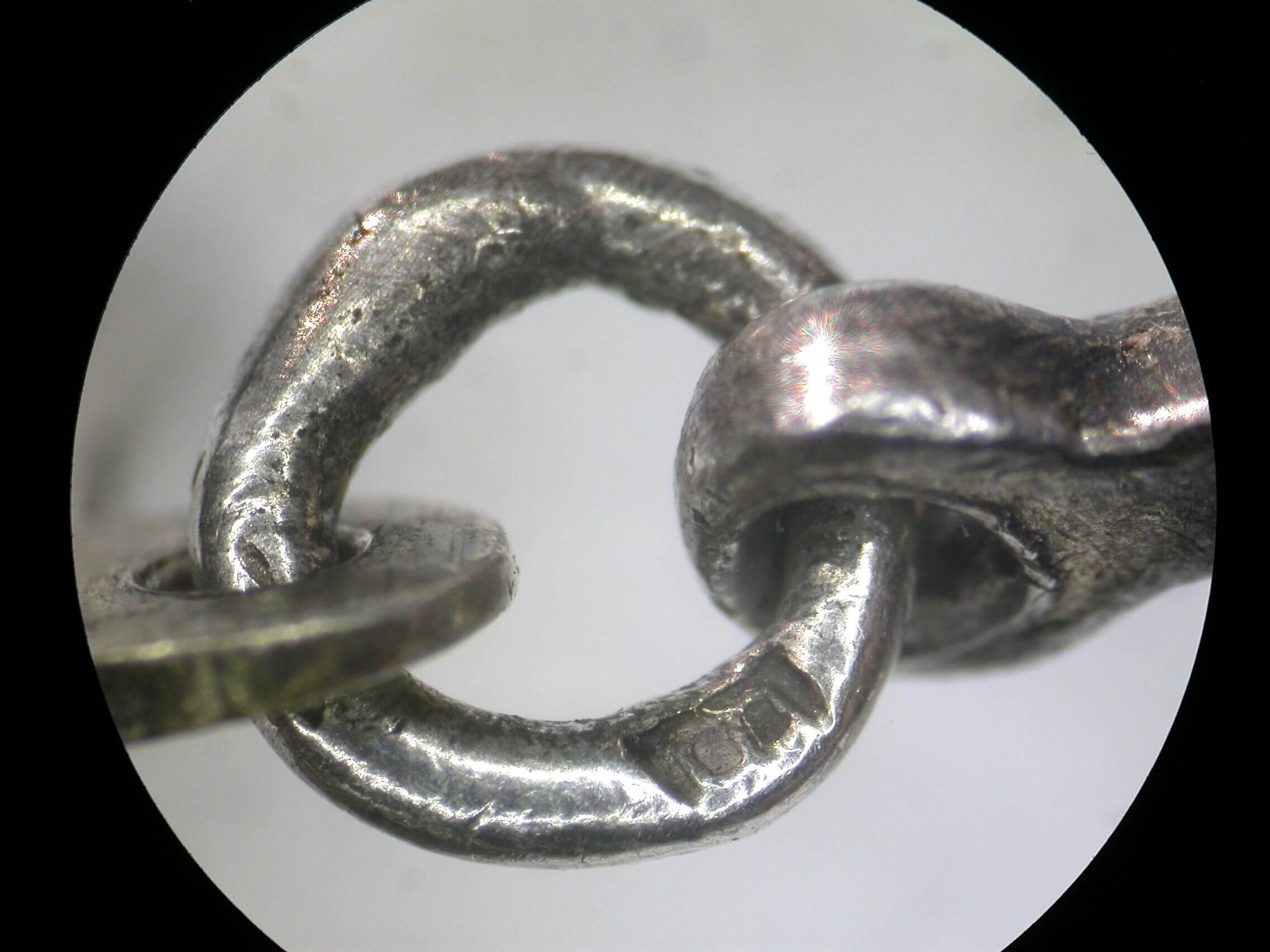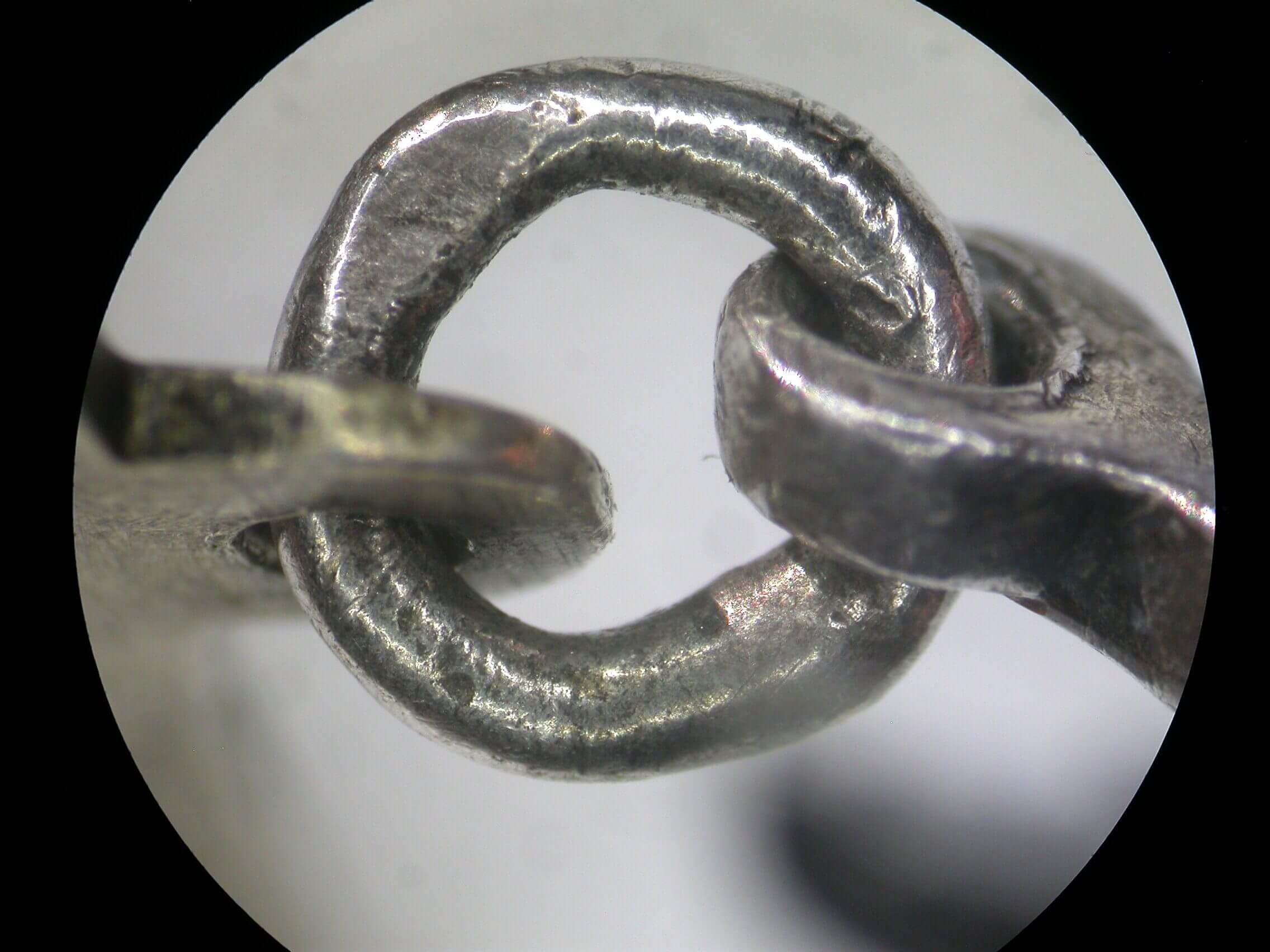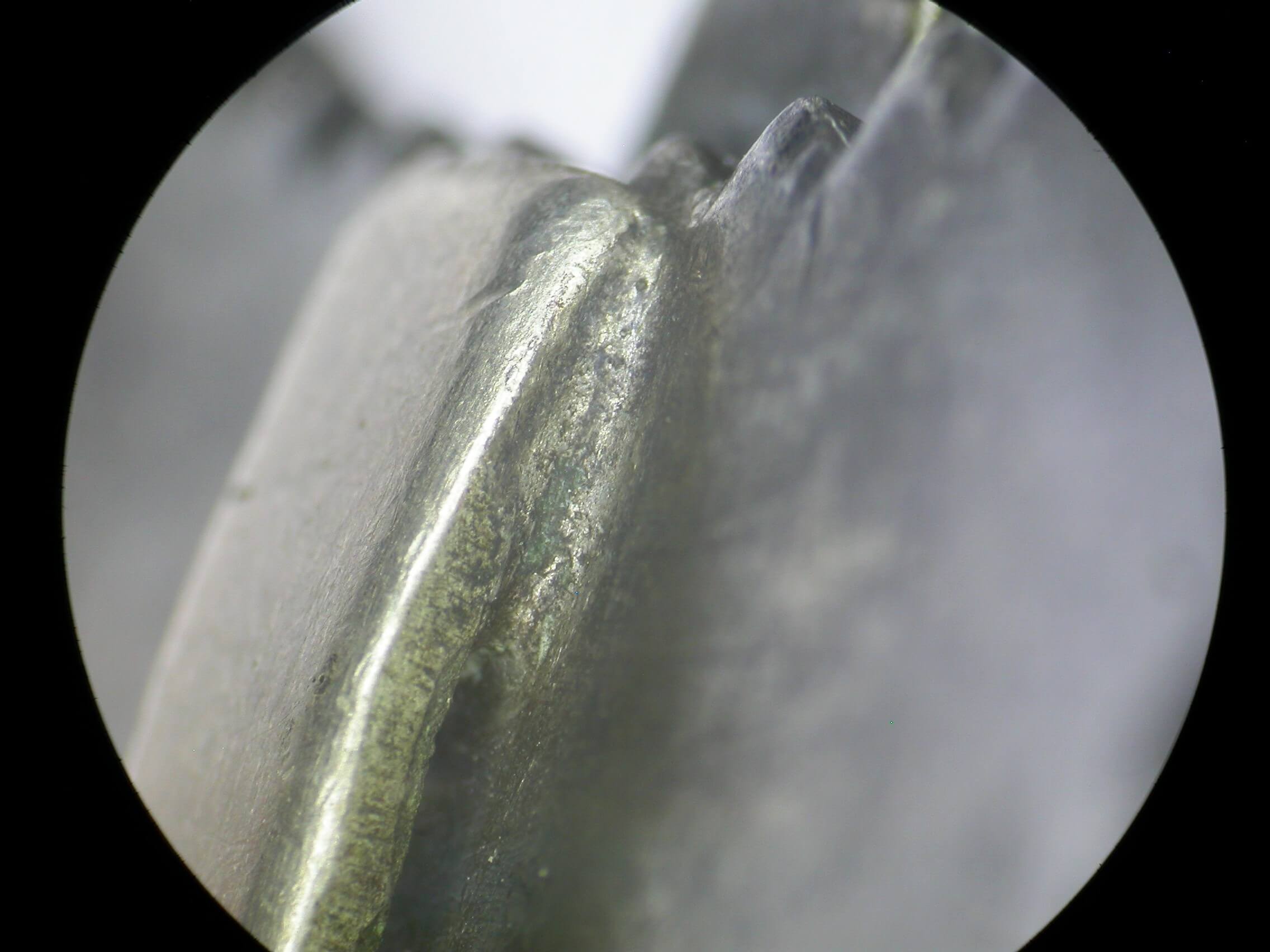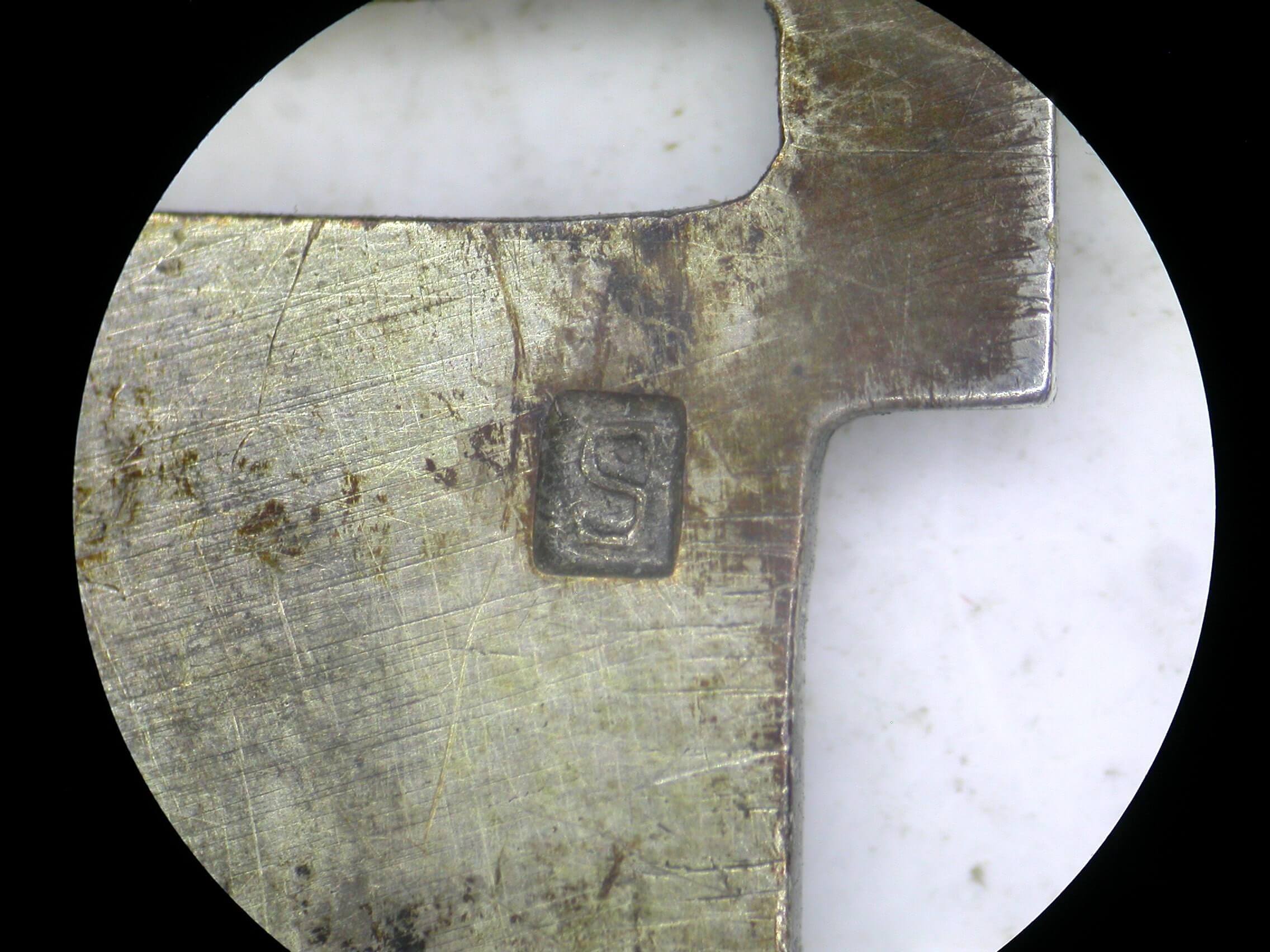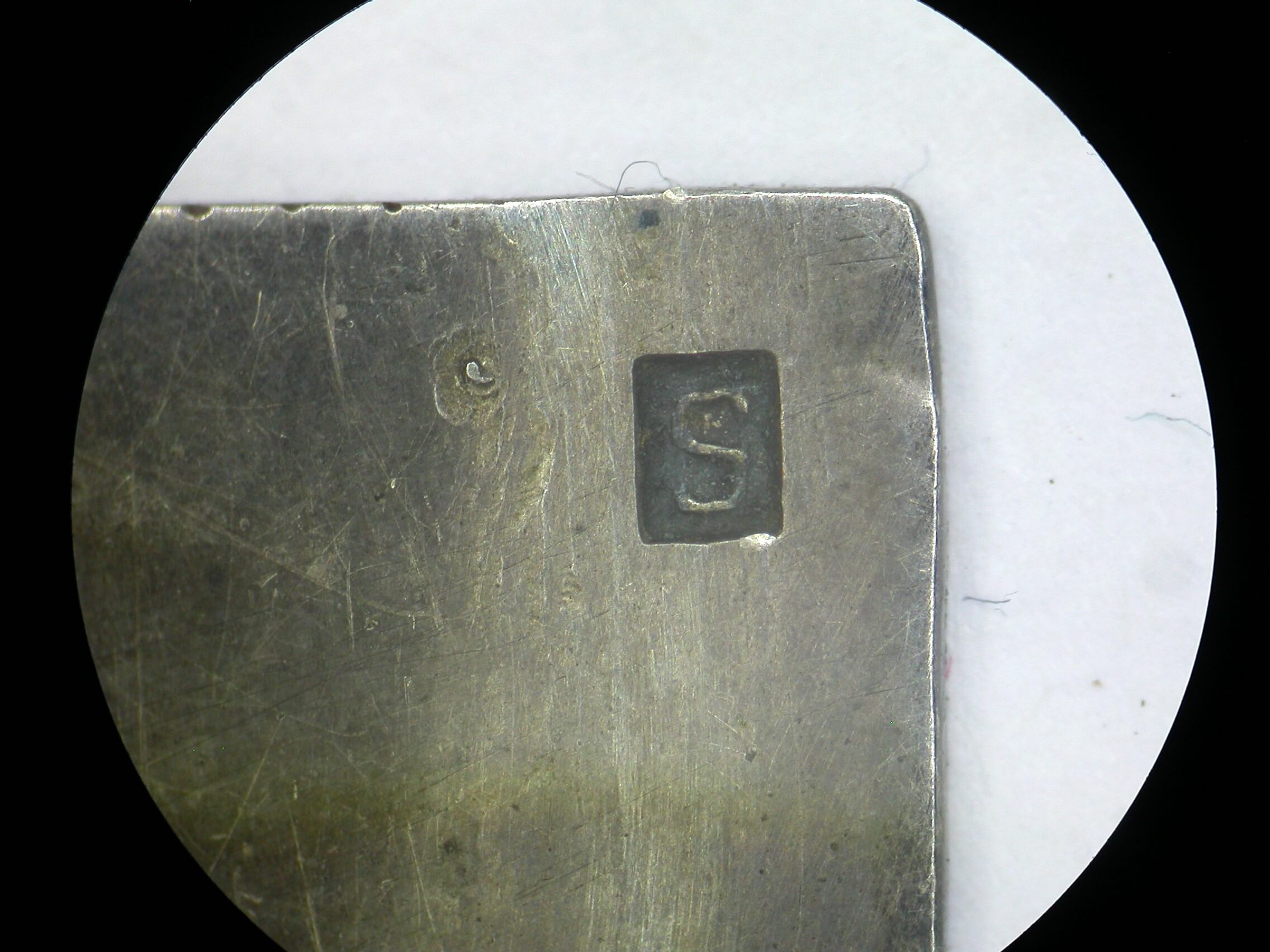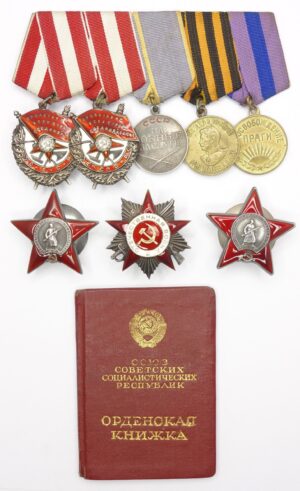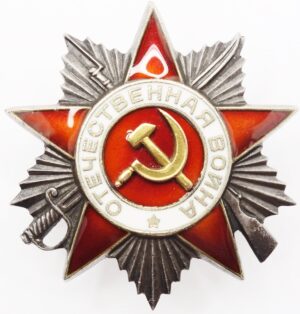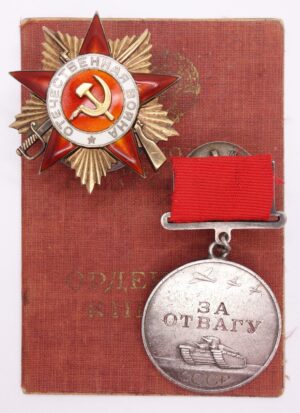Description
Order of the Patriotic War 2nd class #11033
Awarded to Partisan Vasily Efimovich Yankovsky (Василий Ефимович Янковский)
Yankovsky was a partisan during World War II, known for his role in the resistance against Nazi forces. He conducted reconnaissance missions and sought supplies for their unit. In one notable incident, he narrowly escaped a German raid in Trukhnovo after being betrayed by a local informant. When German troops surrounded the house they were hiding in, Yankovsky and his comrades fought their way out by hurling grenades, catching the enemy off guard and managing to escape into the forest
Made of solid silver, gold and enamels. The order measures 42.70 mm in width, 46.63 mm in height including the eyelet and it weighs 28.5 grams without its suspension and 36.5 grams with suspension but without its nut. The suspension measures 32.27 mm in width at its widest point and 19.84 mm in height at its narrowest part (without the eyelet). The serial number is located at the 7 o’clock position. The minimum known number of this variation is 2816 and the maximum known number is 14642.
The main medallion is in a nice, above average condition for a suspension-type Order of the Patriotic War. All details are visible and crisp. Both sides show several dings and scratches to the silver base, along with a nice, even dark patina. The white enamels are fully present and well-preserved. The red enamels on the 12 o’clock ray of the star have been replaced, but the enamels on the other rays are original and problem-free. Its original stickpin is still firmly attached, as is the hammer and sickle, secured by its original rivets. The connection ring is intact and uncut.
The suspension is not a mint production but a custom (possibly unofficial) replacement. It’s entirely made of silver and bears stamps (letter “S”) on the suspension device itself, the rectangular silver plate holding the ribbon, and even the eyelet. The origin and purpose of this suspension are unknown, but it appears to be old. We suspect it was added while the awardee still possessed the order.
The citation for his Order of the Patriotic War has not been found online. However, we did find some information about Yankovsky:
Vasily Yankovsky was a partisan during World War II, known for his role in the resistance against Nazi forces. He, along with Alexander Grigoryevich Grigoryev and Ivan Vasilyev, conducted reconnaissance missions and sought supplies for their unit. In one notable incident, they narrowly escaped a German raid in Trukhnovo after being betrayed by a local informant. The Germans retaliated by executing Grigoryev’s mother and destroying his family home, intensifying the partisans’ resolve. Yankovsky’s contributions exemplify the bravery and sacrifices of Soviet partisans during the war.
The sources can be read here and here and here
Below is the full translation of the PDF:
Your Heroes, Leningrad – Hero of the Soviet Union, Alexander Grigoryevich Grigoryev
“Forward, for Leningrad!”
At first, some in Soshikhino thought that Alexander Grigoryevich Grigoryev was organizing a partisan unit simply because it was his job. After all, as the district party committee’s personnel secretary, he knew people well.
And indeed, he knew people – not just in Soshikhino, but in the surrounding villages. Born in Trukhnovo, he went to school in neighboring Darino. There, with fellow Komsomol members, he helped form a youth commune. He worked as a village librarian in Sinayskaya, then as secretary and later chairman of the village council in Kostygovo. After finishing workers’ school, he taught and later became principal at the Bezvano-Niva school. Only once did Grigoryev part from his homeland for long – a two-year stint at a party school in Leningrad. After that, he returned to the Pskov region.
When he formed the partisan unit, he didn’t leave it—he stayed on as commissar. He already had military experience: he fought as a battery political officer in the Winter War.
His wife, Vera Fedorovna, also became a partisan. Unlike her husband, she had no military background—she was a schoolteacher. Despite this, she refused evacuation. She didn’t take part in all the battles, but the fighters protected women from bullets, assigning them the hard but vital support tasks: cooking, treating wounds, washing, and mending clothes. At night, they sometimes patrolled the camp perimeter with rifles, guarding the exhausted fighters’ sleep.
Vera Fedorovna, who still teaches math, remembers much of what she saw and heard in the partisan forests. She’ll never forget the winter of 1941, when she saw her husband again after he visited his hometown of Trukhnovo. She barely recognized him—not just because he had lost weight and grown a beard, but because something dark and heavy had settled over his face. His thick, unruly hair had turned silver on one side. It looked like frost, but it was the shock of trauma—he’d had no grey hair before.
Even now, she shudders recalling his story.
He arrived in Trukhnovo at dawn, hoping to learn how close the Germans were and whether they came often. His comrades, Ivan Vasilyev and Vasily Yankovsky, joined him. They wanted to scout the area and get supplies. Their packs were empty, and the lure of a warm house was too much to resist.
They snuck into Alexander’s mother’s house. Aculina Grigoryevna was stunned—overcome with both joy and fear. The Germans had already come asking about Sasha. It would be hard to leave the village unnoticed. While the men warmed up, daylight came.
They decided to wait until nightfall. His mother went to ask neighbors about German patrols. But the Germans showed up on their own.
The partisans had been spotted by a traitor.
Just as the three lay down to rest, they heard shouts and gunfire. The Germans were breaking in. The partisans opened fire. The Nazis shouted threats, demanding surrender, and fired back with machine guns.
“We need to break out,” Grigoryev said.
His comrades were confused—how could they escape? The house was surrounded.
“Prepare the grenades. We’ll throw the door open and…”
The Germans were caught off guard, expecting a surrender. Instead—three explosions. While the Germans regrouped, the partisans escaped into the forest. Only one bullet found its mark—hitting Ivan Vasilyev in the heel.
They escaped, but Grigoryev couldn’t leave without learning what happened next in Trukhnovo. He found out: the Germans executed his mother, burned the house, and killed his uncle Stepan and several neighbors.
That’s when Alexander Grigoryev’s hair turned grey.
From then on, he fought with even greater fury. The Nazis were no longer just invaders—they were his personal enemies. He took revenge for his mother and his village. As commissar of the 3rd Partisan Regiment, he constantly harassed the enemy. When not fighting, they sabotaged rail lines and bridges, disrupting German supply routes to Leningrad.
In September 1943, the renowned partisan brigade of Alexander Viktorovich German, including Grigoryev’s regiment, was encircled. Grigoryev’s unit led the breakout. In the thick of battle, the commander was badly wounded. Grigoryev took over and led the charge, breaking through the encirclement.
In October, the partisans reached the Pskov–Staraya Russa railway. A major attack was coming. Their sabotage campaign—the “rail war”—was crucial support for Leningrad’s defenders. The target section was heavily guarded. As they approached, German guns opened up: machine guns, automatic weapons, mortars.
The situation was dire. Advancing meant danger, waiting meant death. Retreat would mean failure.
At this critical moment, the commissar shouted:
“For Leningrad—forward!”
Grigoryev charged. The others followed. Their fierce attack overwhelmed the Germans. The mission succeeded: rails destroyed, two locomotives, 42 loaded wagons, and a railway bridge blown up.
Alexander Grigoryevich Grigoryev died in that night battle. He was posthumously awarded the Gold Star—the highest honor.
Upon request, we can try to locate the citation through other sources, but we cannot guarantee success
Please contact us with questions
